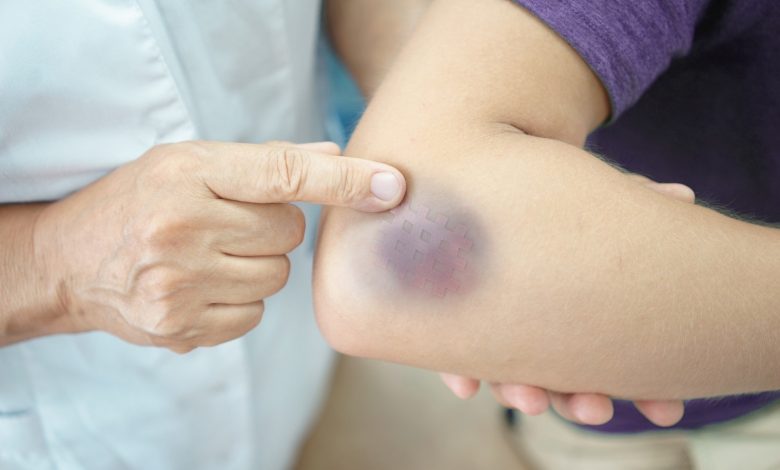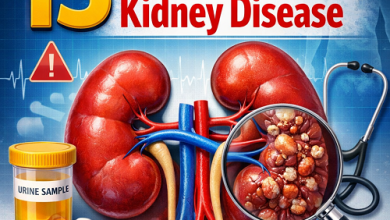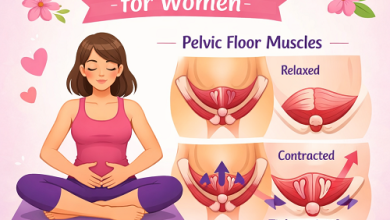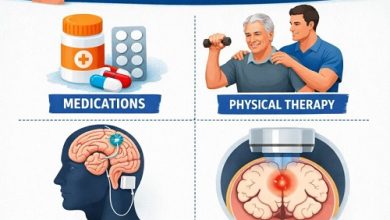7 Shocking Reasons You Bruise So Easily — Doctors Explain Why

A mysterious bruise on your arm. A purple patch on your thigh. And no clue how it got there. If you’ve ever wondered why you bruise so easily, you’re not alone. While occasional bruises are normal — especially after bumping into furniture or working out — frequent or unexplained bruising can be surprising, even alarming.
Doctors say there are several reasons why your skin might be more prone to bruising, ranging from harmless lifestyle factors to more serious underlying health issues. 7 shocking reasons you might bruise easily, what’s happening in your body, and when it’s time to see a healthcare professional.
Understanding What a Bruise Actually Is
Before diving into the causes, it’s helpful to understand the science of bruises. A bruise, or contusion, happens when tiny blood vessels called capillaries break under your skin, often due to a bump or injury. Blood leaks into the surrounding tissue, causing that familiar black, blue, or purple discoloration.
Over days or weeks, your body breaks down the blood cells, and the bruise changes color — from deep purple to green, yellow, and finally fading away.
While everyone bruises occasionally, some people bruise far more easily, and that’s where our list begins.
1. You’re Getting Older — and Your Skin is Thinner
One of the most common — and least surprising to doctors — reasons for easy bruising is age.
As you get older:
- Your skin becomes thinner due to loss of fat and collagen.
- The protective layer that cushions blood vessels weakens.
- Capillaries themselves become more fragile.
This means that even minor bumps — ones you might not have noticed in your 20s — can cause noticeable bruising in your 50s, 60s, and beyond.
Doctor’s note: “Age-related bruising is typically harmless,” says Dr. Lisa Harper, a dermatologist. “But if bruises are unusually large or appear without any contact, it’s worth a checkup to rule out other issues.”
2. Your Medications Are Making You More Vulnerable
If you’ve noticed more bruises since starting a new medication, you might have found your culprit. Certain drugs thin your blood or affect clotting, making bruising more likely.
Common examples include:
- Aspirin and other NSAIDs (ibuprofen, naproxen)
- Anticoagulants like warfarin, heparin, or newer blood thinners (apixaban, rivaroxaban)
- Corticosteroids (oral or topical)
- Certain antidepressants (SSRIs)
These medications can either weaken blood vessel walls, slow clotting, or both.
Doctor’s tip: Never stop a prescribed medication without talking to your doctor. If bruising is a side effect, your provider can adjust your dose or suggest alternatives.
3. You’re Deficient in Key Nutrients
Vitamin and mineral deficiencies can have a surprising effect on your skin and blood vessels.
Three key nutrients linked to bruising are:
- Vitamin C — Essential for collagen production, which supports skin and blood vessel strength.
- Vitamin K — Crucial for proper blood clotting.
- Iron — Needed for healthy red blood cells; iron deficiency anemia can make you bruise more easily.
A diet lacking in fresh fruits, leafy greens, and iron-rich foods can make your skin and capillaries more fragile.
Doctor’s insight: “We often underestimate how much nutrition impacts skin integrity,” says Dr. Michael Tran, a hematologist. “If you bruise easily and feel fatigued, get your vitamin and iron levels checked.”
4. Your Blood Clots More Slowly
If your blood doesn’t clot efficiently, bruises can form more easily and take longer to heal.
Possible clotting issues include:
- Von Willebrand disease — A genetic condition affecting clotting protein.
- Hemophilia — Rare, but it severely reduces clotting ability.
- Low platelet count (thrombocytopenia) — Can be caused by certain medications, autoimmune conditions, or bone marrow problems.
Clotting disorders often cause:
- Large bruises from minor bumps
- Frequent nosebleeds
- Prolonged bleeding from small cuts
When to see a doctor: If you have persistent, unexplained bruises, especially alongside bleeding gums or frequent nosebleeds, get tested for clotting disorders.
5. Your Exercise Routine Is More Intense Than You Realize
Yes, exercise can give you bruises — even if you’re not doing a contact sport.
Here’s how:
- Weightlifting or high-intensity workouts can cause small tears in blood vessels and muscle fibers.
- Sudden increases in exercise intensity can put stress on capillaries.
- Sports with physical contact, like basketball or soccer, naturally increase bump-and-bruise risk.
This type of bruising is usually harmless and part of the body’s adaptation to training.
Pro tip: If you’re bruising often from exercise, try wearing protective gear or adjusting your workout technique.
6. You Have a Family History of Easy Bruising
Sometimes, bruising easily simply runs in families. This can be due to:
- Naturally thinner skin
- More delicate capillaries
- Mild, inherited clotting factor variations
Even without a serious clotting disorder, genetic differences in collagen structure or platelet function can make you more prone to bruises.
Doctor’s note: If easy bruising has been common among your parents or siblings, it’s worth mentioning at your next check-up — even if it’s harmless, it’s helpful context for your doctor.
7. An Underlying Health Condition is Affecting Your Blood Vessels
Finally, easy bruising can sometimes be an early warning sign of a medical condition that affects your blood, skin, or connective tissue.
Possible culprits include:
- Liver disease — The liver produces clotting proteins; damage can reduce clotting ability.
- Leukemia or other blood cancers — Can lower platelet count and disrupt clotting.
- Connective tissue disorders — Like Ehlers-Danlos syndrome, which weakens collagen.
- Diabetes — Can make blood vessels more fragile over time.
Warning signs to watch for:
- Bruises in unusual places (like the back or abdomen)
- Persistent fatigue
- Unexplained weight loss
- Frequent infections
If any of these symptoms appear alongside unexplained bruising, seek medical attention promptly.
When Should You Worry About a Bruise?
Most bruises are harmless, but see a doctor if you notice:
- Bruises that appear without any injury
- Large, painful, or swollen bruises
- Frequent nosebleeds or bleeding gums
- Bruises that take longer than 3–4 weeks to fade
- Bruising alongside fever, fatigue, or weight loss
Early evaluation can rule out — or confirm — underlying issues before they become serious.
How to Reduce and Heal Bruises Faster
While you can’t completely prevent bruises, these tips can help minimize them:
- Protect your skin: Wear long sleeves or padding if you’re prone to bumping into things.
2. Support your nutrition: Eat foods rich in vitamins C, K, and iron.
3. Apply ice quickly: 10–15 minutes after an injury reduces blood flow and swelling.
4. Elevate the area: Helps limit blood pooling in the bruise.
5. Avoid smoking: Smoking weakens collagen and slows healing.
6. Stay active but careful: Exercise improves circulation but avoid sudden, intense movements if you bruise easily.
The Bottom Line
Bruising is part of being human — but if you bruise more easily than others, there could be an explanation hidden in your age, lifestyle, medications, genetics, or health.
Doctors emphasize that while most cases are harmless, persistent or unusual bruising should never be ignored. From nutrient deficiencies to clotting disorders, your skin can be a messenger for what’s happening inside your body.




